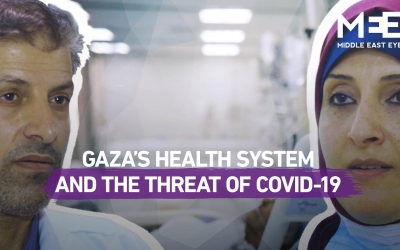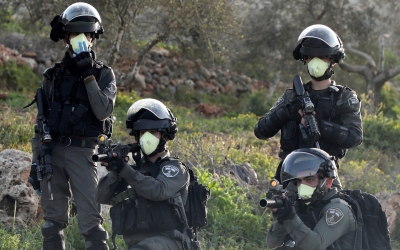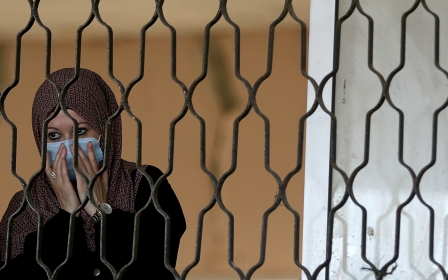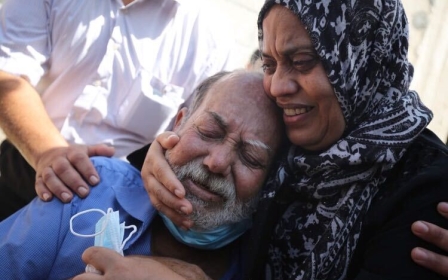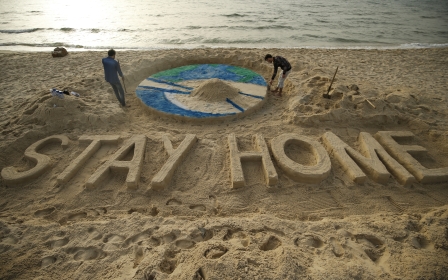Coronavirus: Gaza testing capacity halved due to chronic shortages
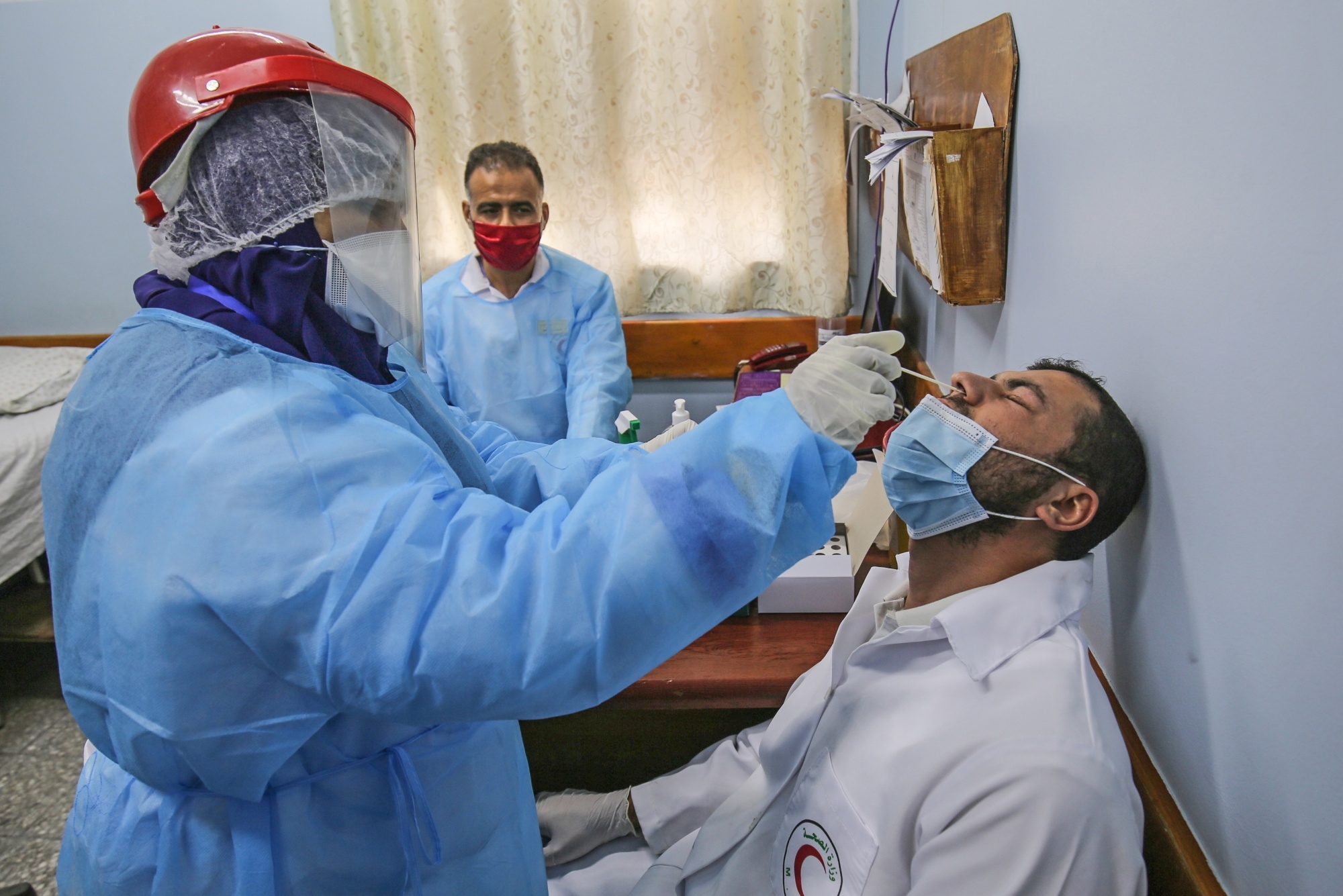
The Gaza-based Ministry of Health announced on 24 September that one of the two devices used for analysing coronavirus tests in the besieged Palestinian territory has stopped operating due to shortages of laboratory materials.
“We suffer a shortage of 50 percent of laboratory supplies, which will affect other tests needed by Covid-19 patients,” the ministry said in a statement.
New MEE newsletter: Jerusalem Dispatch
Sign up to get the latest insights and analysis on Israel-Palestine, alongside Turkey Unpacked and other MEE newsletters
The Gaza Strip has long dealt with a precarious medical situation. More than 13 years into a crippling Israeli-led siege, the Palestinian enclave has struggled with a financial crisis that has caused shortages in necessary medical materiel and medicine.
Meanwhile, the siege has put significant hurdles in the way of Palestinian patients and their relatives seeking to travel outside Gaza for treatment.
For years, the health ministry in Gaza - which is de facto governed by the Hamas movement separately from the West-Bank based Palestinian Authority - has launched numerous humanitarian appeals to save its medical sector. With the rise of the pandemic this year, the crisis has only gotten more urgent.
Since 24 August, the interior ministry in Gaza has imposed a curfew from 8pm to 8am to control the spread of the pandemic in the small densely populated enclave.
As of 1 October, the Gaza Ministry of Health has reported 3,075 confirmed cases of Covid-19, including 22 deaths - with medical professionals worried that numbers will only rise.
Dr Ayman Halabi, the director of medical services for the health ministry, said in a statement last week that Gaza was not only facing a shortage of testing kits, but also in reagents - the main ingredients of chemical-based tests such as those used to detect the coronavirus - in the enclave’s central laboratory.
Without reagents available, Halabi said, efforts to track and contain the spread of the virus in the Gaza Strip are seriously hindered.
The Qatari committee for Gaza reconstruction supplied the health ministry with a newer and faster device used to analyse PCR tests on 1 September, bringing the total number of these machines in Gaza’s central laboratory to two.
“The new device helped speed up test results but the reagents we use to operate this device have run out, so we are back to depending only on the old device,” Halabi said. “This will reduce the number of tests that the central laboratory can run.
“There is a shortage in materials needed to identify the Covid-19 virus,” Halabi said. “All the materials we have are almost running out, the central laboratory can only keep operating for a matter of days.”
The World Health Organisation (WHO) said on 21 September that it had delivered 20,000 swabs and laboratory extraction supplies to conduct 6,000 tests in Gaza - but Halabi said the health ministry quickly ran through these supplies.
A few days later, the WHO provided more supplies to analyse 8,000 PCR tests. While thanking the international body, health minister spokesman Ashraf al-Qidra said this new donation would only suffice for four days.
Speaking to MEE, Qidra said that the small amount of supplies provided by international organisations was not enough to properly tackle the pandemic in Gaza.
“We call upon all world organisations and relevant people to realise how critical the critical is and support the central laboratory by providing the tools needed for Covid-19 tests,” Qidra said.
“Gaza is one of the most densely populated areas in the world, so 2,000 daily tests are not enough to deal with the increasing number of infections,” he added. “We need to provide enough support to the central laboratory to process at least 4,000 tests a day.”
Dr Hani Moqaied, the Ministry of Health director responsible for the tests, told MEE that Gaza was dependent on three sources to obtain medical material: the ministry placing order with companies in Egypt and the West Bank, donations by the PA Ministry of Health in the West Bank, and donations by foreign states or international organisations.
“The ministry used to be able to address shortages of medication by ordering them, and even then could not fill the gap,” Moqaied said. “Now, the quantities needed are huge and out of the ministry’s ability.”
According to Qidra, Gaza faces a 47 percent shortage in all medication, a 33 percent shortage in medical supplies, and 65 percent shortage in laboratory and blood bank supplies.
“There have been many appeals to supply the central laboratory with the necessary tools for testing before the second device stopped,” Qidra said.
“We need to get support to sustain the plan we had made to face Covid-19, which includes ensuring the central laboratory and the European hospital are ready, providing protective equipment, medication, intensive care beds, ventilators, and training for medical staff,” Qidra said.
Piecemeal donations, the spokesman added, “may cause a temporary relief, but it does not fix the crises faced by the Gaza Strip.”
Middle East Eye delivers independent and unrivalled coverage and analysis of the Middle East, North Africa and beyond. To learn more about republishing this content and the associated fees, please fill out this form. More about MEE can be found here.


